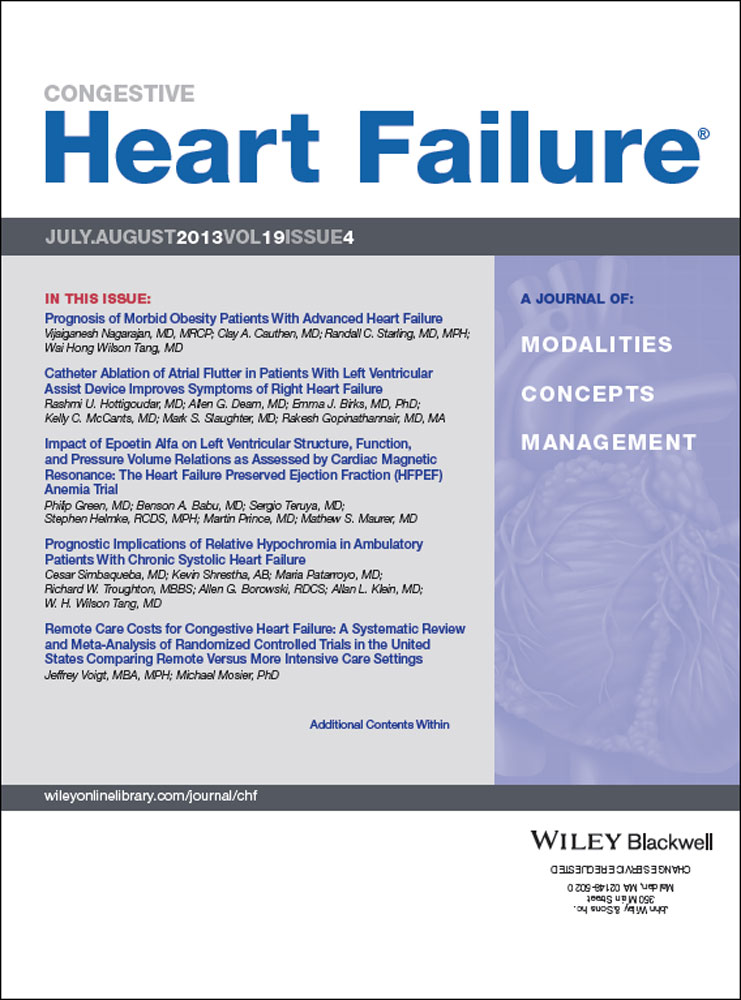Resource Use and Survival of Patients Hospitalized With Congestive Heart Failure: Differences in Care by Specialty of the Attending Physician
Abstract. Background. Previous studies suggest that specialty care is more costly but may produce improved outcomes for patients with acute cardiac illnesses.
Objective. To determine whether patients with congestive heart failure who are cared for by cardiologists experienced differences in costs, care patterns, and survival compared with patients of generalists.
Results. Compared with patients of generalists, patients of cardiologists were younger (mean age, 63.3 and 71.4 years; P<0.001) and had lower Acute Physiology Scores at the time of admission (35.1 and 36.7; P<0.001) but were more likely to have a history of ventricular arrhythmias (21.0% and 10.2%; P<0.001). At 6 months, 201 (27%) patients of cardiologists and 149 (27%) patients of generalists had died. After adjustment of sociodemographic characteristics and severity of illness, patients of cardiologists incurred costs that were 42.9% (95% CI, 27.8% to 59.8%) higher and average daily TISS scores that were 2.83 points (CI, 1.96 to 3.68 points) higher than those of patients of generalists. Patients of cardiologists were more likely to undergo right-heart catheterization (adjusted odds ratio, 2.9 [CI, 1.7 to 4.9]) or cardiac catheterization (adjusted odds ratio, 3.9 [CI, 2.4 to 6.2]) and had higher odds for transfer to an intensive care unit and electrocardiographic monitoring. Adjusted survival did not differ significantly between groups at 30 days; however, there was a trend toward improved survival among patients of cardiologists at 1 year (adjusted relative hazard, 0.82 [CI, 0.65 to 1.04]) and at maximum follow up (adjusted relative hazard, 0.80 [CI, 0.66 to 0.96]).
Conclusions. In this observational study of patients hospitalized with congestive heart failure, cardiologist care was associated with greater costs and resource use and no difference in survival at 30 days of follow-up. Whether the trend toward better survival at longer follow-up represents differences in care or unadjusted illness severity is uncertain.—Auerbach AD, Hamel MB, Davis RB, et al. Resource use and survival of patients hospitalized with congestive heart failure: Differences in care by specialty of the attending physician. Ann Intern Med. 2000;132:191–200.
Comment. As we enter the new millennium, health care providers face many challenges. The major issue that we are encountering is how we can optimize outcomes for an expanding population with the available resources.
There is a significant amount of available data which suggests that acute cardiac problems have better outcomes when a cardiovascular specialist decides on treatment as compared to a general practitioner designed evaluation and management. However, the specialty care tends to be more costly. As the American health care system becomes more “cost conscious” the pressure to justify incremental costs will undoubtedly increase.
We have many methods for assessing the price of interventions. The authors of this paper measured hospital costs in a prospective fashion for a group of 1298 patients who were hospitalized for an acute decompensation of heart failure. Their analysis of this observational study showed that specialist intervention was more costly without any associated difference in survival at 30 day follow up.
I believe this study gives us important information but its design has provided conclusions which are unlikely to be supported by larger scale trials which look at true long term follow up. As our understanding of the pathophysiology of heart failure has improved so has our ability to alter its natural history. With all the different modalities of intervention available, it becomes obvious that in order to stay current with the newest and best data, one must devote a tremendous amount of time to this endeavor. Currently, available guidelines can greatly assist the generalist in caring for the majority of heart failure patients, but there are a significant number of patients who will benefit from individualized therapy designed by the specialist.




